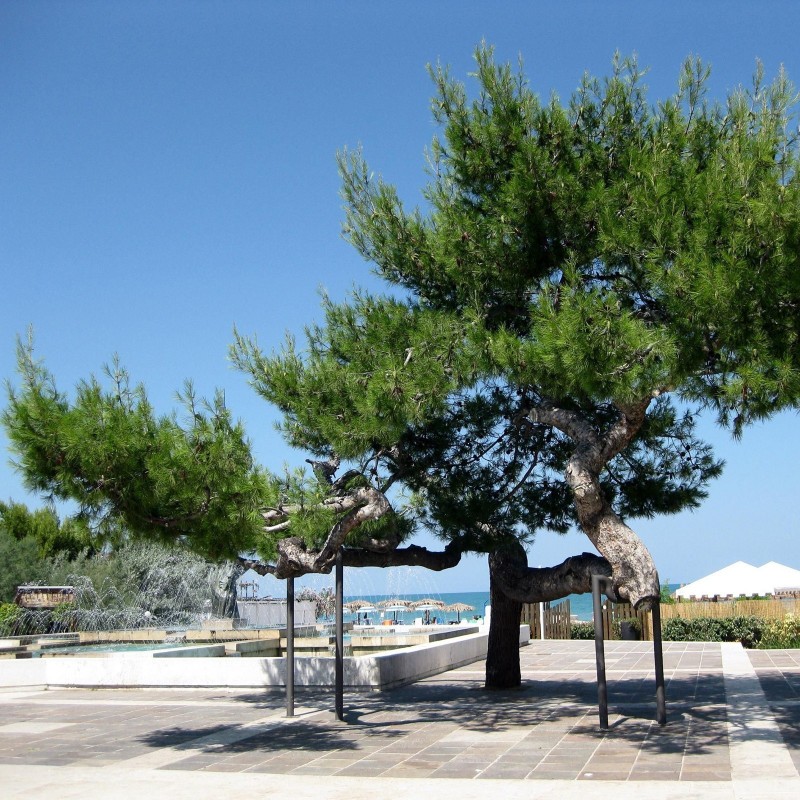





The Aleppo Pine tree is a Maltese indigenous tree and grows in most Mediterranean countries. It is a coniferous, evergreen tree. It is a small to medium-sized tree, reaching 15-25m of length and with a trunk
The Aleppo Pine tree is a Maltese indigenous tree and grows in most Mediterranean countries. It is a coniferous, evergreen tree. It is a small to medium-sized tree, reaching 15-25m of length and with a trunk diameter of up to 60cm. The leaves are very slender like ‘needles’ and are 6-12cm long, light green in colour and produced in pairs. The cones are 5-8cm long and 2-3cm broad at the base when closed, green at first, ripening to brown when 24 months old. They open slowly over the next few years, a process quickened if they are exposed to heat such as in forest fires. The cones open wide to allow the seeds to disperse. The seeds are 5-6mm long, with a 20mm wing, and are wind-dispersed. Aleppo pine reproduces by seed only. Seeds are mostly shed during summer. Up to 90% of seeds can germinate. The tree starts producing after its fourth year.
There are no male or female Aleppo Pine trees, but the tree produces male and female cones which start growing in autumn. Female cones are usually closer to the top and grow as individuals. Male cones grow in clusters. The one that we normally think of as a ‘cone’ is the female cone that produces the seeds. Since the male cones are full of pollen which is dispersed by the slightest movement, female cones are wind pollinated.
When one of the branches of the Aleppo Pine tree is cut off, the tree will never again grow another branch from the same place but will remain without that branch for the rest of its life. When a branch is cut off, a sticky substance called „resin‟ comes out from the tree trunk. This is a natural disinfectant which the tree produces to disinfect its wound. In colder countries, where a similar species of pine is cut down to produce timber and paper, this resin is collected and used in pine disinfectant.